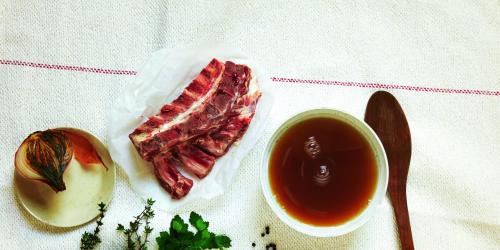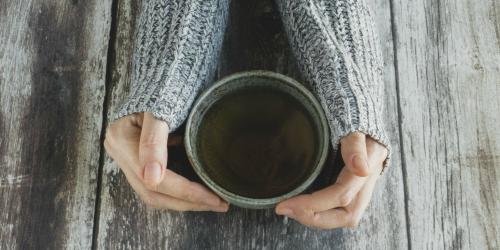At the time of purchase
Pesticides have no taste, no smell and no color, so there is no way to detect them. Producers need to be on time between the last pesticide application and harvest, but that is not enough to eliminate everything. In addition, there are sometimes traces of banned pesticides since 2003: some unscrupulous farmers do not hesitate to sell old stocks!
What are we doing ? A phytosanitary product such as pesticides is dangerous only if it accumulates in the body, this risk is lower if you eat varied. But if you consume a large amount of food - the apple, for example - distrust: an apple tree receives 27 chemical treatments a year , instead buy organic apples . Foods grown organically have the lowest pesticide levels (just traces). If they are not completely exempt, it is that, after treatment of a field, about a quarter of the pesticides sprayed is found in rainwater likely to pour out miles. In addition, the specifications of an organic farmer are not the same depending on whether he is French or outside the EEC, the former being more controlled. Attention finally to the presence of mold on organic fruits and vegetables: they too are deemed carcinogenic and therefore unfit for consumption.
In the skin of fruits and vegetables
Pesticide residues are regularly found in fruits and vegetables , and more than a quarter of them contain residues from 2 to 8 different pesticides! The pesticide treatment is done on the surface. It is therefore at the level of the peripheral leaves - for salads and leafy vegetables - and at the level of the skin of the fruits that one finds a maximum of products.
What are we doing ? Salads and citrus fruits, peaches and pears are particularly affected. However, just throw the few leaves outside a salad or a leafy vegetable and peel the fruits and other vegetables to get rid of a lot of unwanted. However, be careful with the lemon zest that floats in your tea. You really need to peel everything, but as finely as possible, on pain of losing the vitamins (also concentrated on the periphery). Then, to remove small amounts of pesticides that have filtered through the leaves of a salad or leafy vegetable, wash thoroughly and dry with a paper towel or a clean cloth. Residues of pesticides that may still be in the water droplets will be really eliminated. However, do not rely on the cooking of the food because it does not change the concentration of phytosanitary products.
In animal fats
Beef, poultry and farmed fish can have high levels of pesticides if they have been fed treated and residue-laden plants! Analyzes conducted by the WWF have also provided evidence. On the cereal side, the risks are lower because the plants are normally treated before the development of the grain.
What are we doing ? Pesticides are concentrated in animal fats , so it is better to choose the leanest cuts, fish that are not farmed, skim milk or from organic farming. We also pay attention to whole grains, their envelope acts as a reservoir for pesticides. Better to choose refined grains (their husks have been removed) or complete, provided that they are organic and untreated.
No excess of zeal in the garden!
It is better to lose a small part of the crop than to flood it with phytosanitary products . They are accused of decreasing our fertility, disrupting our hormones, promoting certain cancers, Parkinson's disease and even diabetes. Recently, the research team of the University of Caen, led by Professor Séralini , has shown that Roundup (the most widely used herbicide in the world) would be toxic to human embryonic cells after a short period of time. exhibitions. And the mere fact of regularly handling pesticides, as is the case with home gardeners, would increase the risk of Parkinson's disease by up to 70% (Annals of Neurology).
More informations...
"We wash our hands," by Dr. Frédéric Saldmann , ed. Flammarion. Very practical, really useful, to put in all hands to end these mistakes that we commit all day long and end up making us sick ...
"Pesticides: revelations about a French scandal", by Fabrice Nicolino and François Veillerette , ed. Fayard. A book that raises many questions about major decisions made about pesticides.
www.pesticides-non-merci.com for a list of all pesticides that may contaminate common foods and their potential health effects. Edifying!


